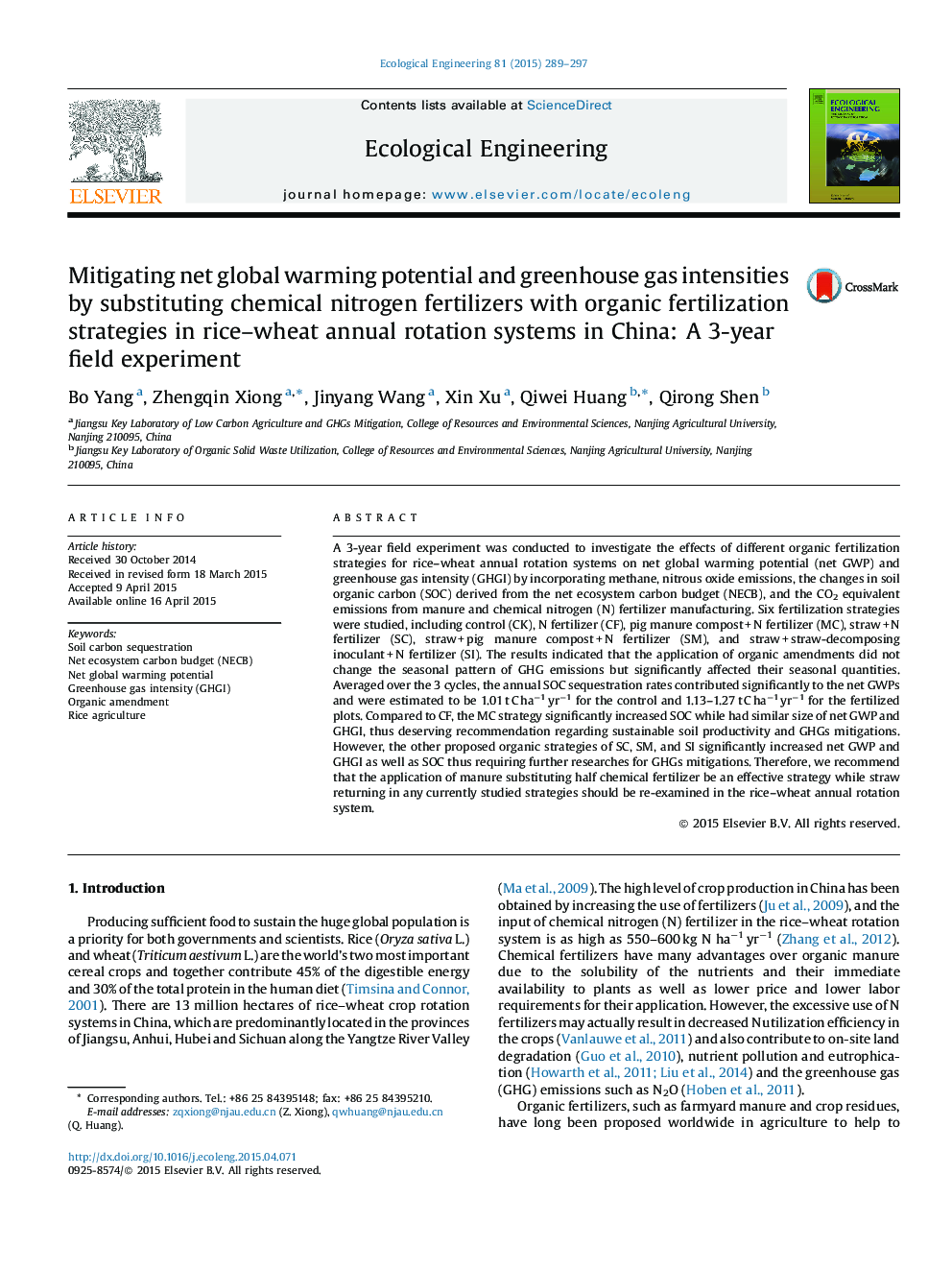| Article ID | Journal | Published Year | Pages | File Type |
|---|---|---|---|---|
| 4389084 | Ecological Engineering | 2015 | 9 Pages |
•Organic amendments increased net GWP, GHGI as well as carbon sequestration.•CO2 equivalent emissions from N fertilizer manufacturing cannot be ignored.•Manure substituting half N fertilizer is a good strategy based on SOC, net GWP & GHGI.
A 3-year field experiment was conducted to investigate the effects of different organic fertilization strategies for rice–wheat annual rotation systems on net global warming potential (net GWP) and greenhouse gas intensity (GHGI) by incorporating methane, nitrous oxide emissions, the changes in soil organic carbon (SOC) derived from the net ecosystem carbon budget (NECB), and the CO2 equivalent emissions from manure and chemical nitrogen (N) fertilizer manufacturing. Six fertilization strategies were studied, including control (CK), N fertilizer (CF), pig manure compost + N fertilizer (MC), straw + N fertilizer (SC), straw + pig manure compost + N fertilizer (SM), and straw + straw-decomposing inoculant + N fertilizer (SI). The results indicated that the application of organic amendments did not change the seasonal pattern of GHG emissions but significantly affected their seasonal quantities. Averaged over the 3 cycles, the annual SOC sequestration rates contributed significantly to the net GWPs and were estimated to be 1.01 t C ha−1 yr−1 for the control and 1.13–1.27 t C ha−1 yr−1 for the fertilized plots. Compared to CF, the MC strategy significantly increased SOC while had similar size of net GWP and GHGI, thus deserving recommendation regarding sustainable soil productivity and GHGs mitigations. However, the other proposed organic strategies of SC, SM, and SI significantly increased net GWP and GHGI as well as SOC thus requiring further researches for GHGs mitigations. Therefore, we recommend that the application of manure substituting half chemical fertilizer be an effective strategy while straw returning in any currently studied strategies should be re-examined in the rice–wheat annual rotation system.
